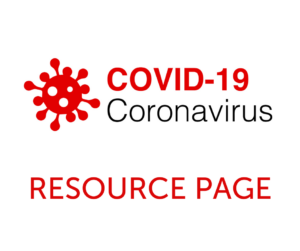
What If My Depression Doesn’t Go Away?
Below you will find an excerpt about treatment for depression from the Faculty of Harvard Medical School. First, however, I’d like to convey my strong, immediate reaction to the report.
As I was reading this article, I thought about “The List”…the list of medications I took from 1961 to 1972…Valium being the first of my introductions to mind-altering drugs. I had no idea what they were or the damage they could do…I simply obeyed orders. In those days, you never questioned a doctor’s instructions!
When 10 milligrams of Valium didn’t help my headaches, fatigue or crying spells, the dosage was increased …repeatedly, in fact, over a six-month period. And as other symptoms manifested — depression, insomnia, inner trembling, blurred vision and dizziness — additional medications were added to the mix. Before long I was introduced to Mellaril, Tofranil and then Thorazine.
After years of trying these medications and my symptoms not improving, psychotherapy was suggested. Two of the therapists just changed my medications, but the third suggested a series of treatments that he thought would combat my depression. By 1969, I was so severely depressed that I welcomed any suggested treatment…I was torn between wanting to live and wanting to die.
I did not know that the treatments were electroconvulsive shock therapy! However, once in the hospital, I was not allowed to leave. I was told that I had signed papers for a series of treatment, and that’s what I was going to get. Needless to say, I came home in worse shape than when I went into the hospital. The whole experience was something I kept to myself and didn’t share for years. The shame, embarrassment and humiliation of being labeled a “mental patient” were too heavy a burden to bear.
Fast forward to 1972. My symptoms were stabilizing… or so I thought. I was in church on a Sunday morning when I suddenly passed out while standing. After several of these episodes, I reluctantly went to a doctor in Hollywood, Florida. After looking over my medical history, he said… “With all the tests and treatments you have had over all these years, you never had a Glucose Tolerance Test” (GTT)… so he ordered one. It was only then, ten years after being undiagnosed, misdiagnosed and labeled “crazy” (mostly by me), that I finally had a name for my condition…I had a severe case of functional hypoglycemia, also known as low blood sugar! The cure…a simple diet!
You can read all about this story in detail in my book, The Do’s and Don’ts of Hypoglycemia: An Everyday Guide to Low Blood Sugar. My purpose here today is to caution anyone with depression – especially severe depression that doesn’t go away – before years of medication, psychotherapy or the ECT treatment (that is once again popular) are prescribed…evaluate your dietary habits! What you are (or are not) eating can contribute to how you think, act and feel! Ask your healthcare practitioner to check your blood sugar, thyroid, hormone and insulin levels. Look into allergies and food sensitivities. Leave no stone unturned. The life you save may be your own!
What If My Depression Doesn’t Go Away?
Content provided by the Faculty of Harvard Medical School
Excerpted from a Harvard Special Report.
Until doctors have a way to test people ahead of time to see which treatment will work for each individual, finding the right approach is a matter of trial and error. Depending on the severity of the depression and other factors, including your preference, you may start with either psychotherapy or medication, or a combination of the two.
If the first drug you try doesn’t work after four to eight weeks of treatment, your doctor may increase your dosage. If that doesn’t work, he or she may suggest that you switch to another drug in the same class or a drug in a different class. You can try several different antidepressants in sequence until you find one that is most helpful. Your doctor may also recommend adding psychotherapy if that hasn’t been part of your treatment plan.
If you still don’t respond to these therapies, your doctor may prescribe an additional medication, such as lithium or an antipsychotic medication, to be taken with the antidepressant. Depending on the type of symptoms and their severity, the next step may be trying electroconvulsive therapy or light therapy. Newer therapies, such as vagus nerve stimulation or repetitive transcranial magnetic stimulation, are other options for you and your doctor to discuss. Your doctor or mental health professional is also likely to address life circumstances or losses that may be putting pressure on you or a problem with substance abuse that may be getting in the way of your progress.
Having to go through all of these steps may sound discouraging, but finding the treatment that works for you will be worth the effort.
One major study, the Sequenced Treatment Alternatives to Relieve Depression (STAR*D) trial, took a close look at how people respond to “real world” treatment, where they try a series of treatments until they find one that works. More than half of the people who participated in the study went into remission after two treatment levels. Overall, 70% of all the people who didn’t withdraw from the study got relief from all their symptoms of depression.
You can improve your chances for successful treatment by taking steps to help yourself, including understanding how to take your medication, discussing your plan in detail with your doctor and abiding by it, and keeping up with therapy appointments
Here’s to your health,
Roberta Ruggiero




Recent Comments